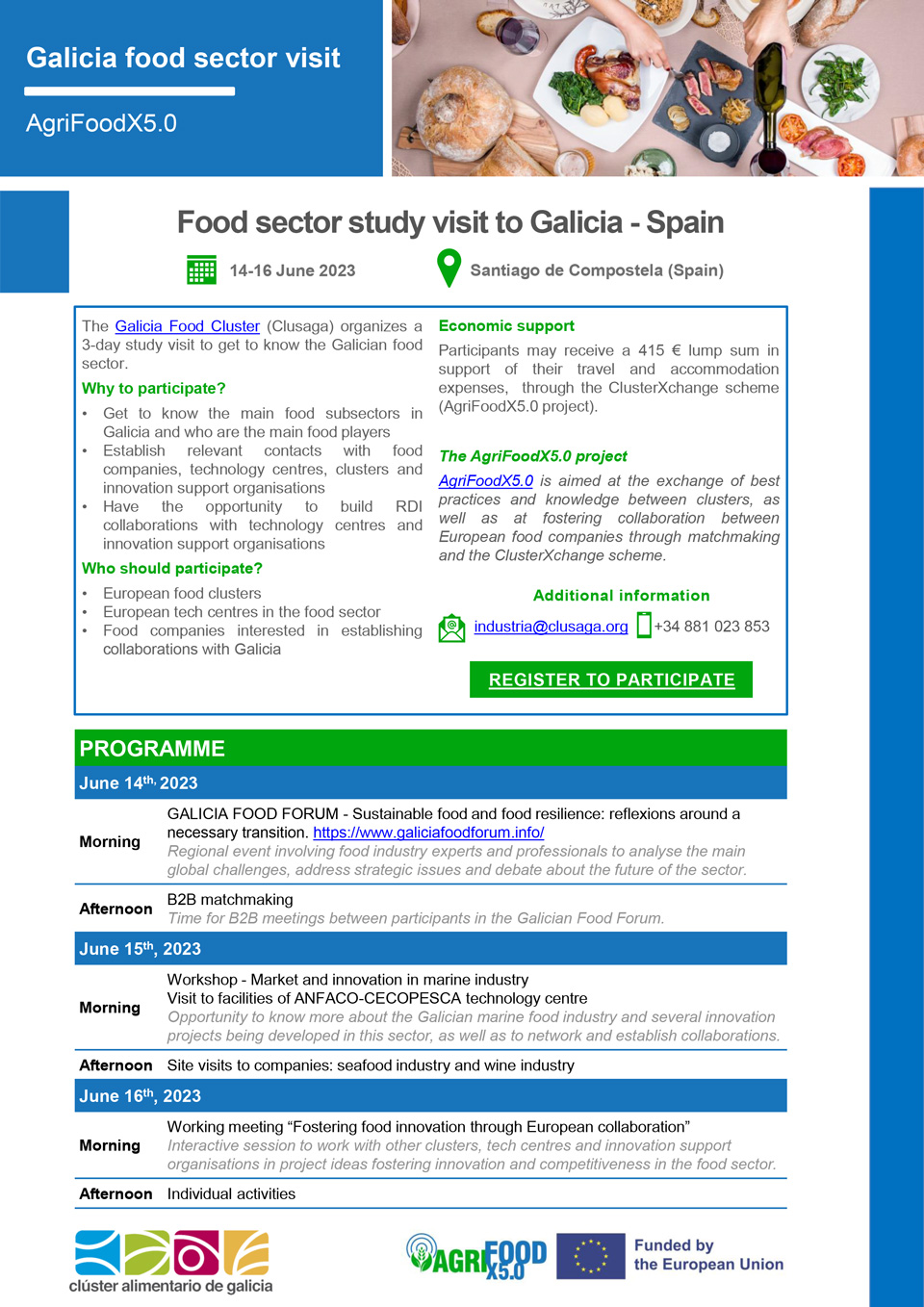AgriFoodX5.0 Newsletter
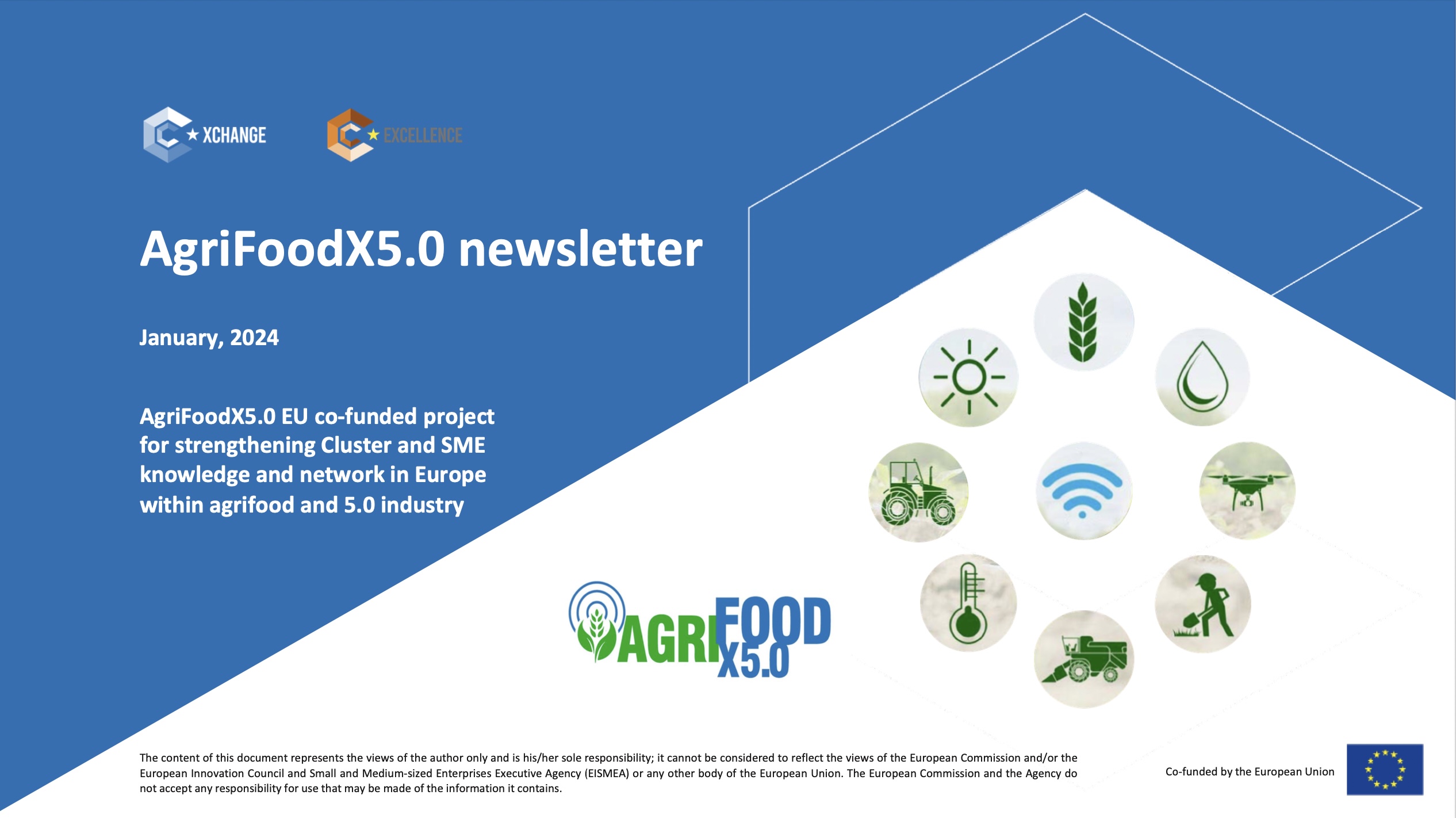
International project Value4Pack will help businesses and local governments prepare for changes in EU packaging law
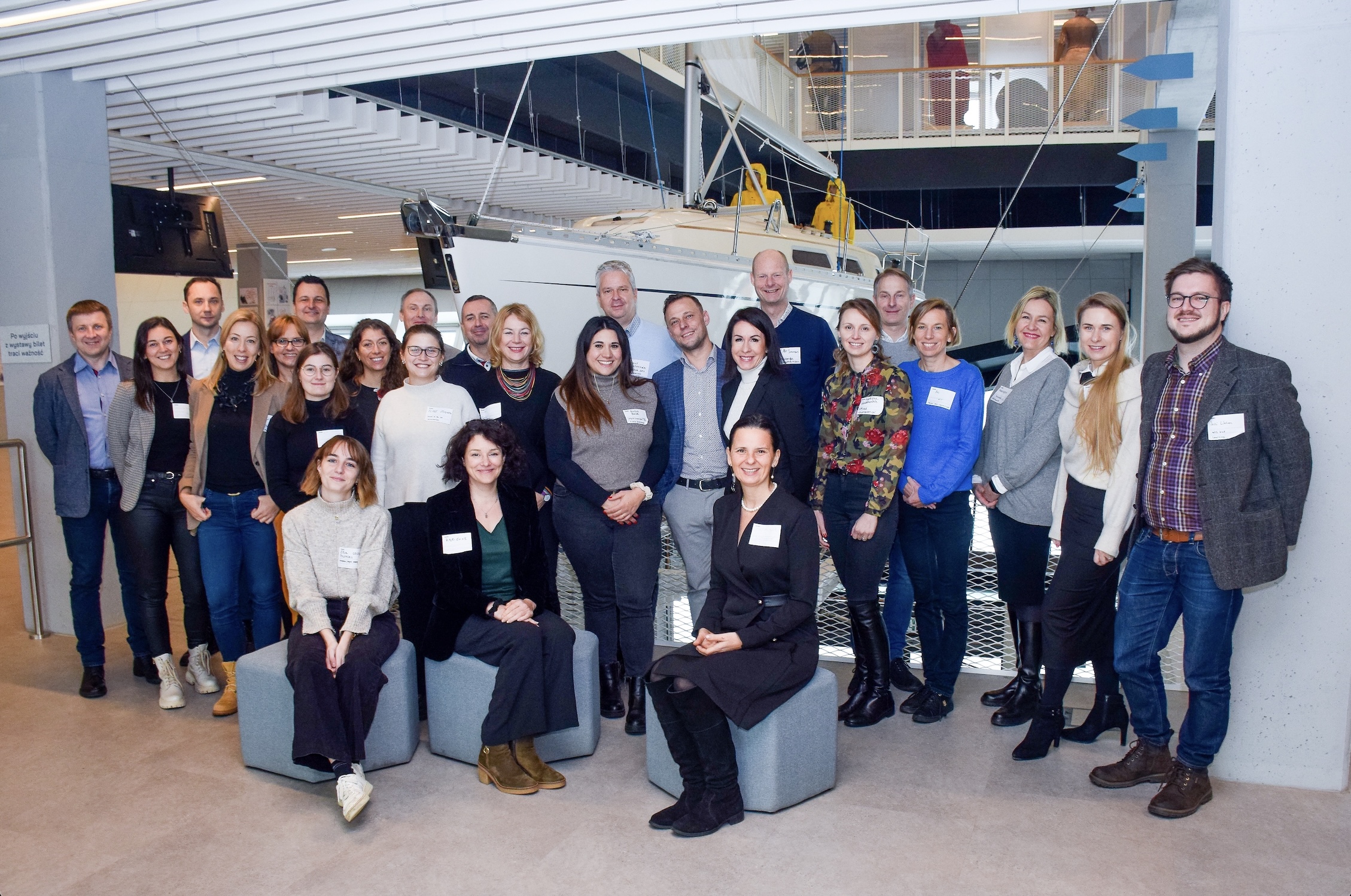
Food Products Quality Cluster, together with partners from 11 countries, will help companies and authorities address challenges accompanying the Packaging and Packaging Waste Regulation (PPWR) regulation expected to come into effect in 2024. On December 18, the Council of the European Union agreed on the PPWR which is expected to curb the growth of packaging waste, better organize the EU packaging market, and support circular economy. The act specifies requirements for the composition of packaging materials and demands for material recyclability in large volumes. Packaging that does not meet those requirements will not be allowed on the market. The changes are significant and affect multiple industries, including packaging manufacturers, food producers, recyclers, municipal companies, and local governments. Simultaneously, awareness of the upcoming changes is low, and there is no credible and comprehensive information available on this topic.
Value4Pack is providing help in this situation as an initiative of 14 organizations from 11 countries, from Spain to Latvia, dedicated to implementing circular economy, designing innovative packaging and recycling. Polish association NATUREEF took key role of project’s coordinator.
Value4Pack’s goal is to prepare companies and regions to implement solutions that will help them respond to the challenges of the PPWR regulation, like mandatory content of post-consumer recyclate in every packaging, recyclability of every packaging introduced to the market and availability of infrastructure for collecting, sorting and recycling packaging.
Packaging ecosystem in every region
The participants of Value4Pack will examine the 29 regions they come from for their readiness to implement the recommendations of the PPWR regulation in their area and the real scale of cooperation between all entities affected by the new regulations. Project partners will conduct workshops and meetings with packaging manufacturers, waste processing companies and local authorities. Specific initiatives will be prepared for the entire ecosystem needed to meet the requirements of PPWR, with business plans and presentations for investors. If necessary, organizers will reach out to partners, such as specialized companies, outside their home regions. Value4Pack will also explore the possibility of obtaining funding for projects from EU programs. As a result, by October 2024, 10 projects ready for funding are expected to be created, involving at least 25 companies. They will be important links in local ecosystems of the packaging and waste processing industry, in line with the new PPWR provisions 1. To meet the requirements of PPWR, investments must be made, for example, to help produce recyclate that will have to be added to new packaging, as it is not always profitable to import them from another part of the country or Europe.
Contacts for more information about the Project and possibilities – annarozenfelde@gmail.com
Funded by the European Union. However, the views and opinions expressed in the article are solely those of the author(s) and do not necessarily reflect the views of the European Union or EISMEA. Neither the European Union nor the funding body can be held responsible for them.
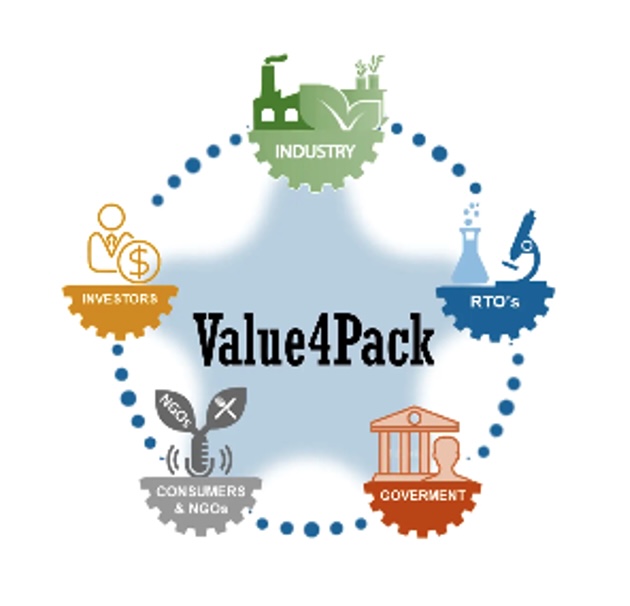

The project is funded by the European Commission's new Interregional Innovation Investments Instrument (I3) supporting interregional cooperation.
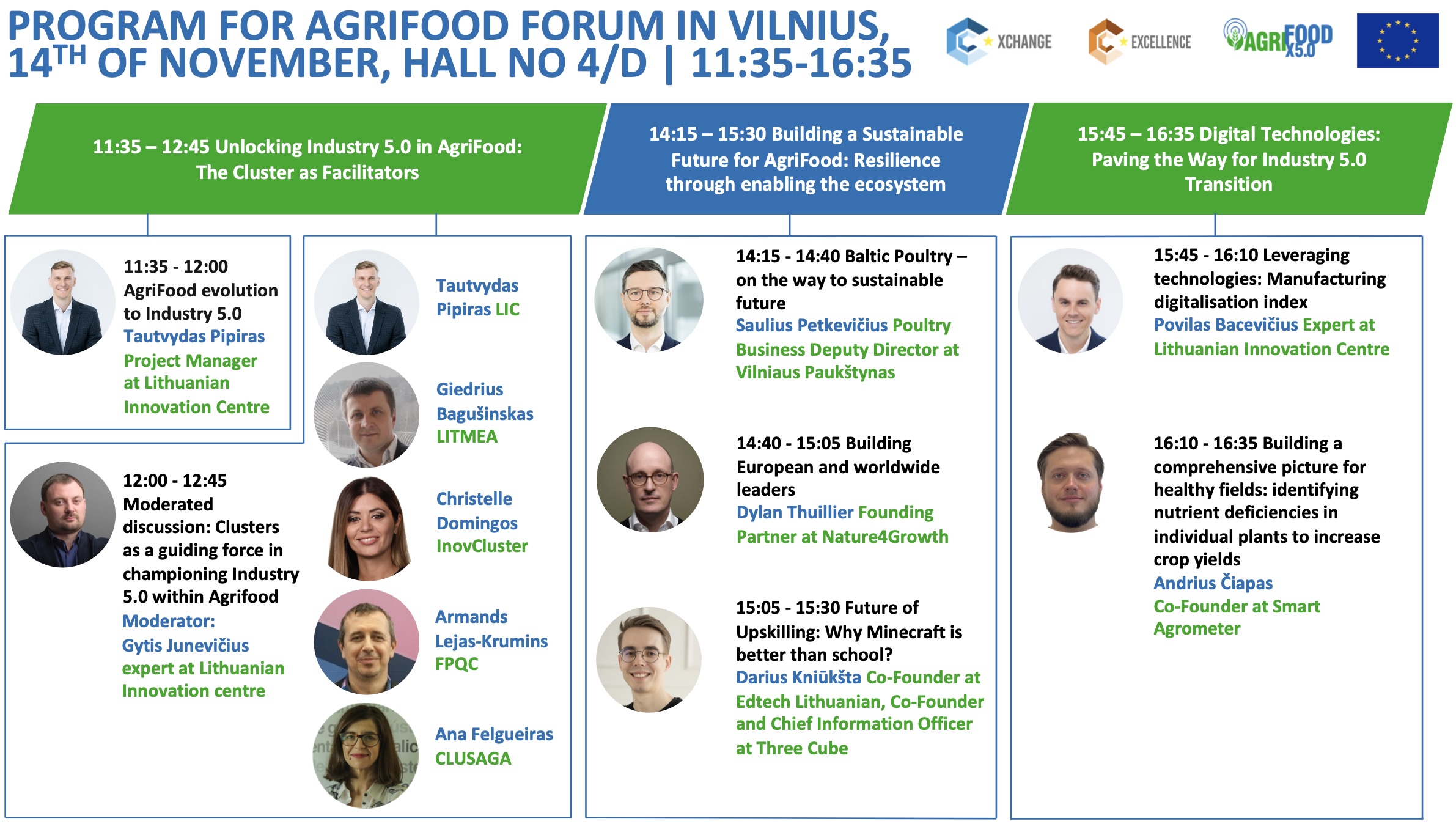
Project No 3.2.1.1/16/A/002 “Partikas produktu Kvalitates Klasteris” has successfully finished 31.12.2022.
During the Project:
- Export missions were made to 15 countries
- More than 200 meetings between Latvian Food Producers and foreign buyers were organized
- More than 2000 foreign buyers were introduced with Latvian Food production
- Incoming buyers visit was organized to meet Latvian food producers and visit them
- Carried out common research on improving food product packaging and on extending the food product expiration date – as a result, new products have been introduced
FPQC is participating in COSME project AgriFoodX5.0
The European Innovation Council and SMEs Executive Agency (EISMEA) has signed grant agreement with the five-partner consortium. The grant is awarded for the action entitled “Cluster Excellence Improvement through cluster Exchange for Industry 5.0 (AgriFoodX5.0)”
The Project implementation started on 1st of February 2022 and its duration is 24 months.
Project budget:
Grant amount: EUR 499 168.74
Total budget: EUR 650 403.41
The AgriFood5X.0 project is composed by 5 organizations from 4 EU countries.
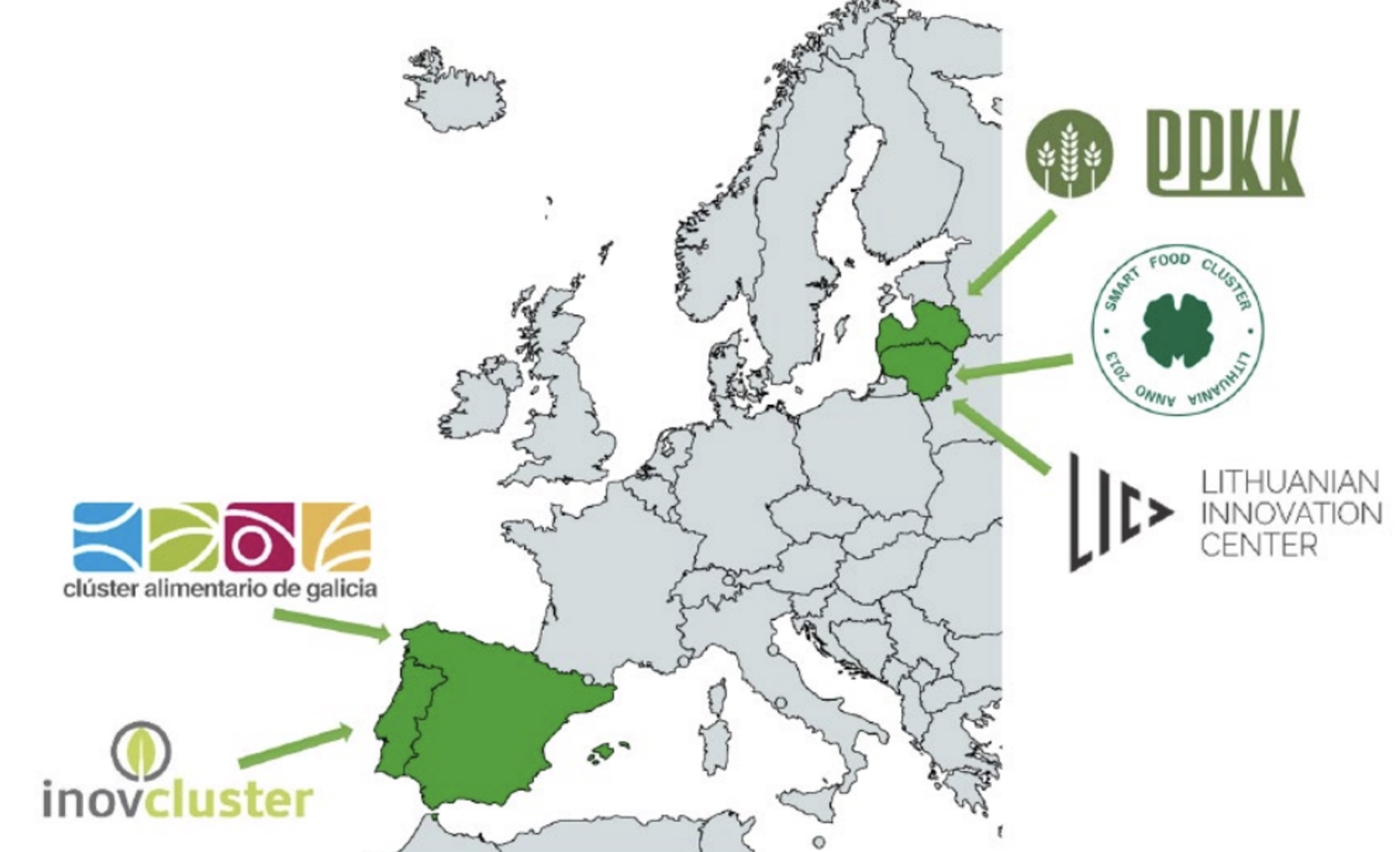
AgrifoodX5.0 is EU co-funded project that aims:
- To strengthen cluster management excellence
- To facilitate exchanges and strategic partnering between clusters and specialized eco-systems across Europe;
- To offer to the cluster’s SMEs and integrated program and services based on excellence to drive and catalyze industry 5.0 concept in the food sector;
- The specific objective of AgrifoodX 5.0 is to enhance the collaboration, networking and learning of clusters organizations and their members.
Direct beneficiaries:
- Agriculture and Food Clusters and its coordinators/managers;
- SMEs (SMEs members of the partnerships and also other SMEs from other clusters related to the agri-food and ICT/digital solution sector);
- Other European agri-food and ICT digital solutions clusters members.
Indirect beneficiaries:
- Other European Clusters;
- Regional/national authorities and policy makers.
Outcomes of the project for direct and indirect beneficiaries
- AgriFoodX5.0 partner members will have an access to new services (cluster service catalogue) related to following topics developed during the project:
- Growth and innovation potential;
- Value chain;
- Skill needs;
- Cross sectoral opportunities.
- Access to trainings for Project partners managers on following topics:
- Digital transformation;
- Creative economy;
- Sustainability;
- Circular economy.
- Share experience on ESCA labelling.
- Participating at C2C level workshops to share good practices of helping cluster organisations to team up at European level, 20 organisations will benefit from partnering counties.
- Participating knowledge sharing exchange workshop to increase knowledge about hackathons.
- Participation in hackathon solving agrifood and 5.0 industry challenges.
- Participation in 4 different matchmaking events hybrid type organised in Lithuania, Latvia, Spain and Portugal.
- Participate in exchanges and strategic partnering between clusters and specialized eco-systems across Europe through implementing “ClusterXchange” scheme.
This document was funded by the European Union’s COSME Programme
The content of this document represents the views of the author only and is his/her sole responsibility it cannot be considered to reflect the views of the European Commission and/or the European Innovation Council and SMEs Executive Agency (EISMEA or any other body of the European Union The European Commission and the Agency do not accept any responsibility for use that may be made of the information it contains.
Project Safe Smart Food consortia representative participates in the event “Clusters Driving the Green and Digital transitions”
Manager of Food Products Quality Cluster Armands Lejas-Krumins participated in the event “Clusters Driving the Green and Digital transitions”, organized by the EISMEA, the European Commission and the Ile de France Region took place on 22-23 November 2021 in Saint-Ouen, France. The event focused on the role clusters, regions, and cities play in supporting these transitions and brought together the members of the EU Expert Group on Clusters, cluster organizations and policymakers from the EU Member States.
On the 2nd day of the event “Partnering-side event for ESCP-4x” was organised where all ESCP-4x Consortia representing their projects, achievements and main takeaways from the past two years of the ESCP-4x programme and attended a training on “Bold strategies for cluster collaboration in changing times”, moderated by Ms Bianca Dragomir (AVAESEN cluster, Founder of the CAP – Cluster Acceleration Programme). Event was very important for the learning knowhow and improvement of the projects in the future.
Project Safe Smart Food was represented by Food Products Quality Cluster’s manager Armands Lejas-Krumins. The aims of the project Safe Smart Food are strengthen the collaboration between clusters and improve their management capacity to create conditions of a favourable ecosystem in the agri-food sector to boost innovation, competitiveness and internationalisation of SMEs and to offer to the cluster’s SMES an integrated program of services based on excellence.
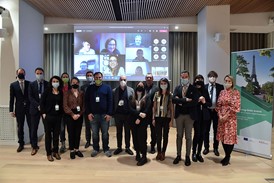
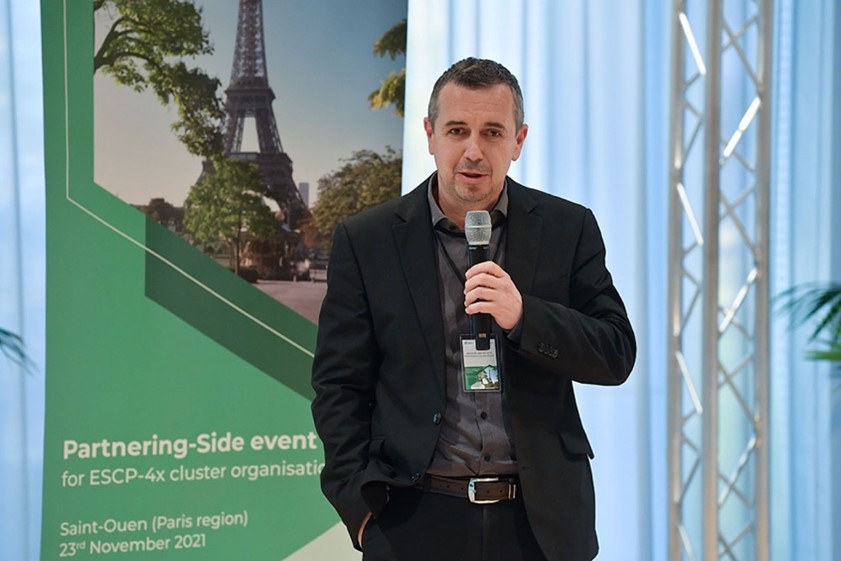
AUMENTA
The Executive Agency for Small and Medium-sized Enterprises (EASME) of European Commission has signed grant agreement with the five-partner consortium, where Latvian IT Cluster is coordinator, for funding five Clusters of cross-sectorial co-operation Project: „Speeding up network internationalization of food, ICT Industry 4.0 clusters and their SMEs towards strategic third countries beyond Europe in field of emerging industries and Fast Moving Consumer Goods (FMCG 4.0)" or "AUMENTA" implementation, in the frame of European Union's small and medium-sized enterprises (SMEs) competitiveness program "COSME".
The Project implementation started on 1st of September 2020 and its duration is 18 months. The Project's overall aim is to implement and test joint internationalization strategy aimed at supporting SMEs to identify growth opportunities worldwide, increase the internationalisation of SMEs, augment business and cooperation opportunities with strategic partners in third countries beyond Europe and facilitate their integration into global value chains.
Project budget:
Grant amount: EUR 446 461.00
Total budget: EUR 496 070.19
Lead partner (Coordinator):
Latvian IT Cluster
Project partners:
Food Products Quality Cluster represented by Latvian Federation of Food Companies
SMART food cluster represented by Lithuanian Food exporters association
Built upon successful implementation of ESCP S3 partnership DIGICLUSTERS, AUMENTA is a novel and interdisciplinary project that takes European SMEs to the next level and boost their internationalization beyond Europe by intensifing cluster and business network collaboration, establishing 'European Strategic Cluster Partnership-Going International' (ESCP-4i) and implementing & testing joint internationalization strategy.
The project interconnects of five relevant and complementary partners from four countries (ES, PL, LT, LV) uniting high technology clusters (ICT/ Industry 4.0) with traditional sectors (food) towards jointly and consciously selected third countries beyond Europe:
> Morocco - as a strategic gate to North African/ South-Mediterranean (MEDA) markets;
> Georgia - as a strategic gate to Caucasus & post-URSS markets;
> Uruguay - as a strategic gate to Latin American markets
to lead international cluster cooperation in field of emerging industries:
> Food 4.0.
> Industry 4.0 applied to agrofood industry
> Fast Moving Consumer Goods (FMCG 4.0) and development of international commerce and eCommerce.
By implementation of pioneering X-Industry Internationalization Programme, AUMENTA will support European SMEs in their fast internationalization to three continents, creating new cooperation and business opportunities to support growth, jobs and wealth.
This article is part of the project AUMENTA that was funded by the European Union’s COSME Programme.
The project is co-funded by the European Union’s COSME Programme
* The content of this article represents the views of the author only and is his/her sole responsibility; it cannot be considered to reflect the views of the European Commission and/or the Executive Agency for Small and Medium-sized Enterprises (EASME) or any other body of the European Union. The European Commission and the Agency do not accept any responsibility for use that may be made of the information it contains.

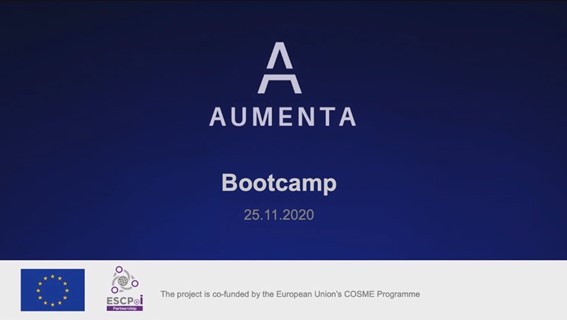
AUMENTA opens borders for the agri-food industry and 4.0 with a pioneering internationalization project in Morocco, Georgia and Uruguay
Partnering organizations from Poland, Latvia and Lithuania and Spain has launched the AUMENTA project, a pioneering European project to support SMEs in the agri-food industry and Industry 4.0 in their international expansion beyond the borders of the European Union.
Funded by the EU COSME program and developed within the framework of the European Cluster Collaboration Strategy for Internationalization (ESCP-4i), AUMENTA aims to help European SMEs find new business opportunities in three key international markets: North Africa, the Caucasus and Latin America. Three countries- Morocco, Georgia and Uruguay are considered as the gateway to these international markets.
The project, which lasts 18 months, includes the organization of international 'Bootcamps' and business missions, as well as the promotion of virtual contacts between European SMEs and the destination markets, the creation of a portfolio of business opportunities and cooperation and monitoring of financing opportunities, among others.
Last week of November the first official AUMENTA event was held, a ‘Bootcamp’ that brought together the ‘ambassadors’ chosen by the project partners as internationalization advisers in the markets they are targeting. Representatives from Georgia, Morocco and Uruguay presented the main characteristics of their markets to the project partners, focusing on the needs of the ICT and agri-food sectors and identifying the opportunities they offer for European SMEs.
AUMENTA is being developed by a pan-European consortium that unites organizations representing the agri-food sector, ICT and Industry 4.0 from Spain (OnTech Innovation), Poland (UNIMOS Foundation), Latvia (Latvian IT Cluster and Food Products Quality Cluster) and Lithuania (Smart Food Cluster). It also has the support of 16 European organizations and public, private, academic, non-governmental institutions and clusters from third countries (Morocco, Georgia and Uruguay).
This article is part of the project AUMENTA that was funded by the European Union’s COSME Programme.
The project is co-funded by the European Union’s COSME Programme
* The content of this article represents the views of the author only and is his/her sole responsibility; it cannot be considered to reflect the views of the European Commission and/or the Executive Agency for Small and Medium-sized Enterprises (EASME) or any other body of the European Union. The European Commission and the Agency do not accept any responsibility for use that may be made of the information it contains.

New services programme derived from a 5-year partnership strategy
The Safe Smart Food consortium aims to provide new and better services to the members of all five clusters
During the last months, the Safe Smart Food team has been working on analysing the food and packaging value chains and their ecosystems in all the countries involved (Austria, Latvia, Lithuania, and Spain) and finding common challenges and opportunities, to elaborate a 5-year common strategy with the main objective of developing common and complementary activities at European level exploiting common synergies and resources.
In a first stage, clusters defined their own Key Success Factors (KSF) that would guide the cluster strategy and its action plan in the next years. With those KSF in mind, the consortium found common areas to build mutual interesting initiatives and run a workshop with all the participants of the project to validate the proposed collaboration lines and define common activities for each one of them. As a result, five collaboration areas were identified:
1. Reinforce Cluster’s governance, brand reputation and attractiveness and support members in their core business activities
Some of the key success factors presented by clusters and grouped under this objective includes, for example: to increase the impact of the cluster and its export development improving their current “core business” activity, to focus on what its important for the members and offer them support, or to become strong actors in providing, for example, incubation space, diffusion of best practice, innovation..., among others.
2. Promote sustainability across value chain
Encouraging and supporting sustainability across the food value chain is getting high relevance in the food and packaging industries and will have a positive impact for cluster members, due to it has been defined as a key strategic objective by de EU, and a relevant part of NGEU founds will be allocated under this topic.
3. Encourage members competitiveness through innovation
The innovation is very relevant in this project because it allows to reinforce the technology along the entire value chain, helps the sector to keep attractiveness and relevance in the economy, and provides innovation education and training for collaboration strategies and knowledge exchange between the organizations.
4. Reinforce international collaboration and information exchange
International collaboration is at the heart of the SSF Program and its part of clusters services. International support to cluster members is also one of most valuated services. Reinforcing information exchange and collaboration is an essential pillar of this strategy.
5. Lead bigger and bolder projects, including EU ones, with higher impact in the industry
The clusters, as sectoral institutions, must ambition to lead bigger and bolder projects with higher impact in the industry that allows leading strategic change activities and high international reputation through strong Food Cluster brand as an opportunity for international projects.
Within each one of these collaboration areas, new activities and services were defined and will be published soon, but here you have some in advance: an innovation agenda with knowledge exchange trips, who is who’s in the innovation ecosystem and collaboration with start-ups; international market intelligence reports; international business missions; and a sustainability summit, among others.
Would you like to know more? Contact us!
Mònica Riera
mriera@packagingcluster.com
---
The Safe Smart Food project is composed by 5 clusters from 4 EU countries, Smart Food Cluster, Business Upper Austria, Packaging Cluster, Foodservice Cluster and Food Products Quality Cluster, who have come together to promote the internationalisation of the associated clusters and their member companies.
The aims of the project are to strengthen the collaboration between clusters and improve their management capacity to create the conditions of a favourable ecosystem in the agri-food sector to boost innovation, competitiveness and internationalisation of SMEs and to offer to the cluster’s SMEs an integrated program of services based on excellence.


Better Factory: growing the European manufacturing business
Better Factory invites Small and Medium-sized Manufacturers (SMEs) to redesign their current product portfolio together with Business and Arts mentors and Technology experts. Manufacturers can tap into disruptive product innovation that responds to new market demands while keeping production resources optimal with RAMP IoT platform.
Better Factory helps manufacturers to enter new markets with customizable, personalized product or service portfolio. Together with Business and Arts Mentors and technology partners, manufacturers can discover new business models and digitalise their factories to match the production of new or personalized products.
During the project, Better Factory will assign high-skilled Business and Arts experts to analyse the current product / service portfolio with the core knowledge from manufacturers, to redesign customizable products and service portfolios using new digital technologies. This may spark new product designs, business models or brands.
For SMEs to produce batches of new and personalized products requires transforming traditional factories into lean and agile production facilities. Better Factories provides an Open and Standardized Advance Production Planning and Scheduling (APPS) system for manufacturers to test commercial tools to optimize waste, energy, resources and logistic.
RAMP (Robotics Automation Marketplace) is a free and open IoT platform (FIWARE) running on state of the art servers, with access to cloud storage and computing, enabling connection with robots, sensors, cameras, AR/VR and other equipment. RAMP will provide 3D simulation tool to create Digital Twin for virtual testing, co-creation space for teams to collaborate online among other digital services.
Better Factory Open Calls
Better Factory will select eight teams of European manufacturing SMEs, artists and technology providers in each Open Call (2021/2022). The selected teams will be supported through a period of 12 months where artists will be paired with technology suppliers to tackle the challenges proposed by the manufacturers.
The successful teams will get to:
- Explore new markets using digital technologies
- Test & develop new Agile-Production technologies with RAMP
- Training to reskill staff
- Business Support and mentoring
- Up to 200,000€ equity-free funding / team
The first Open Call is estimated to be launched on January 2021.
About Better Factory
Better Factory brings together key actors in the European technology, art and innovation landscape to provide an integrated innovation framework and a European network to deliver a standardized solution for Manufacturing SMEs to invent and manufacture new and personalized products and create services around them.
The consortium coordinated by VTT (Finland), includes 28 partners from 18 European countries representing the arts ecosystem (INOVA, GLUON and WAAG); Technology providers (Fraunhofer IPA, AIMEN, Scuola Universitaria Professionale della Svizzera Italiana, Slovakia National Centre of Robotic, INESCTEC, Technologiko Panepistimio Kyprou); Industrial cluster (Transylvania Furniture Cluster, Slovenian Tool and Die Development Centre, Latvian Federation of Food Companies / Food Products Quality Cluster, CLUTEX ‐ Klastr Technicke Textilie, Bydgoszcz Industrial Cluster, Chamber of Commerce and Industry of Pécs‐Baranya, ICT Cluster and University of Oulu); Technology suppliers (INFOTECH, Top Data Science, Holonix, GESTALT Robotics and European Dynamics); Art supplier (In4Art); Business developers (FundingBox, Hermia Yrityskehitys Oy); Legal framework (time.lex); and Communication and Dissemination (Mobile World Capital Barcelona).
Contact
Ali Muhammad
Project Coordinator – VTT (Finland)
e-mail: ali.Muhammad@vtt.fi
Marta Portalés
Marketing and communications – MWCapital (Spain)
e-mail: mportales@mobielworldcapital.com



European Strategic Cluster Partnership for Excellence (ESCP-4x)
Project SAFE SMART FOOD; grant agreement – 874389
The Safe Smart Food project’s kick off meeting in Austria to internationalise food related clusters in Europe
“Several European Clusters have gathered in Austria to present the Safe Smart Food project”
Austrian Food Cluster - Business Upper Austria organised the kick-off meeting of the new European Strategic Cluster Partnership for Excellence (ESCP-4x): Safe Smart Food. The meeting was held in Linz, Austria on March 2nd and 3rd.
The kick-off meeting started on the first day with the introduction of each partner who explained their activities, members, ongoing projects, initiatives and other links with Safe Smart Food project’s strategy.
During the meeting Laura Smith – Wood Cluster was presenting other cluster experiences such as Design Thinking for innovation in SMEs and Dorian Wessely – Cleantech Cluster was presenting bio-based solutions for wood, food, pharma and packaging industries.
On the second day, project work packages were discussed where partners were agreeing in more details on each responsibilities and outcomes on the delivery. It was agreed that:
- Steering Committee meetings will be organised some parts of the project deliverables as strategy.
- Sector studies will be outsourced.
- Within the project, the general skills together with specific skills will be used to elaborate the e-book where skills will be generated within 6 webinars.
- 2 study visits will be organised where each partner will need to involve at least 4 clusters
- A hackathon will be organised
- An exchange programme will be organised, throughout the program sustainability
- And communication and dissemination actions will be implemented.
The Safe Smart Food project
The Safe Smart Food project is composed by 5 clusters from 4 EU countries- Business Upper Austria from Austria, Smart Food Cluster from Lithuania, Food Products Quality Cluster from Latvia and Packaging Cluster and Food Service Cluster, both from Spain. These organizations have driven this project with the intention of promoting the internationalisation of the associated clusters and their member companies.
The aims of the project are to strengthen the collaboration between clusters and improve their management capacity to create the conditions of a favourable ecosystem in the agri-food sector to boost innovation, competitiveness and internationalisation of SMEs and to offer to the cluster’s SMEs an integrated program of services based on excellence.
This initiative provides for more than 50 exchanges between the different members of the European Clusters, which will improve the cluster tool individually and collectively. And it will offer a solution that guarantees healthy and quality food, with a package that takes care of the environmental impact it generates – eco-design – and optimizes resources, both at state and European level.
The needs of SMEs and the stakeholders involved will be analysed, as well as the final consumers, to offer services more aligned with the strategic trends of the sector, such as food security or lack of added value in the products in question. Subsequently, a 5-year strategy will be established to develop an implementation program of the improvements taken from the study, in line with the consortium’s strategy. The tools to reach it are: innovation, internationalisation, networking, sustainability and C2C conferences.
The total budget for the Safe Smart Food is 456,623 € with a contribution of 347,467 € by the European Union and 20 months to carry out the task.
More about the clusters involved:
Business Upper Austria main activities linked with the project’ strategy are: exchange of experience rounds, qualification seminars, trainings, funding consultancy where most of the funded projects are for packaging topics, support in internationalisation and fair tours, matchmaking and networking events.
Packaging Cluster has members from all the packaging value chain. Recently had the Gold Label audit, selected by the Catalan institution ACCIÓ. High level of participation in activities and projects from the cluster’ members. Sustainability and Shared Value working groups are target companies of the project. Annual reports analysing the sector, this year: Industry 4.0. Main activities linked with the project’s strategy are: strategic reflection events, technical and innovation seminars, inter-cluster workshops, internationalisation, training and spreading know-how, R+D+I projects.
Foodservice Cluster of Catalonia is a cluster organisation that is intended to promote and strengthen the competitiveness of the foodservice segment, initiatives aimed at driving the foodservice sector of Catalonia and stimulating and exploiting the synergies between the members of the value chain in order to drive the development of transforming projects. Projects and activities of great impact between cluster members with topics such as: user experience, km.0, digitalisation, food safety, eco/smart packaging, last mile.
Food Products Quality Cluster provides national food quality labels and improvement programmes for national food producers. Exportation is very important for the sector in the country. Members can offer green national products and flexible production to differentiate from big companies. Main activities linked with the project’s strategy are: R+D+I, internationalisation and collaborative projects.
Smart Food Cluster is a part of the European Cluster Alliance. Also, very focused on exportation due to the small size of the national market. Main activities linked with the project strategy are: business missions, B2B matchmakings, connection with packaging industry, digitalisation, new/smart products, internationalisation & growth.
----
This publication was funded by the European Union’s COSME Programme.
The content of this publication represents the views of the author only and is his/her sole responsibility; it cannot be considered to reflect the views of the European Commission and/or the Executive Agency for Small and Medium-sized Enterprises (EASME) or any other body of the European Union. The European Commission and the Agency do not accept any responsibility for use that may be made of the information it contains.
More information:
Contact details: Mònica Riera mriera@packagingcluster.com
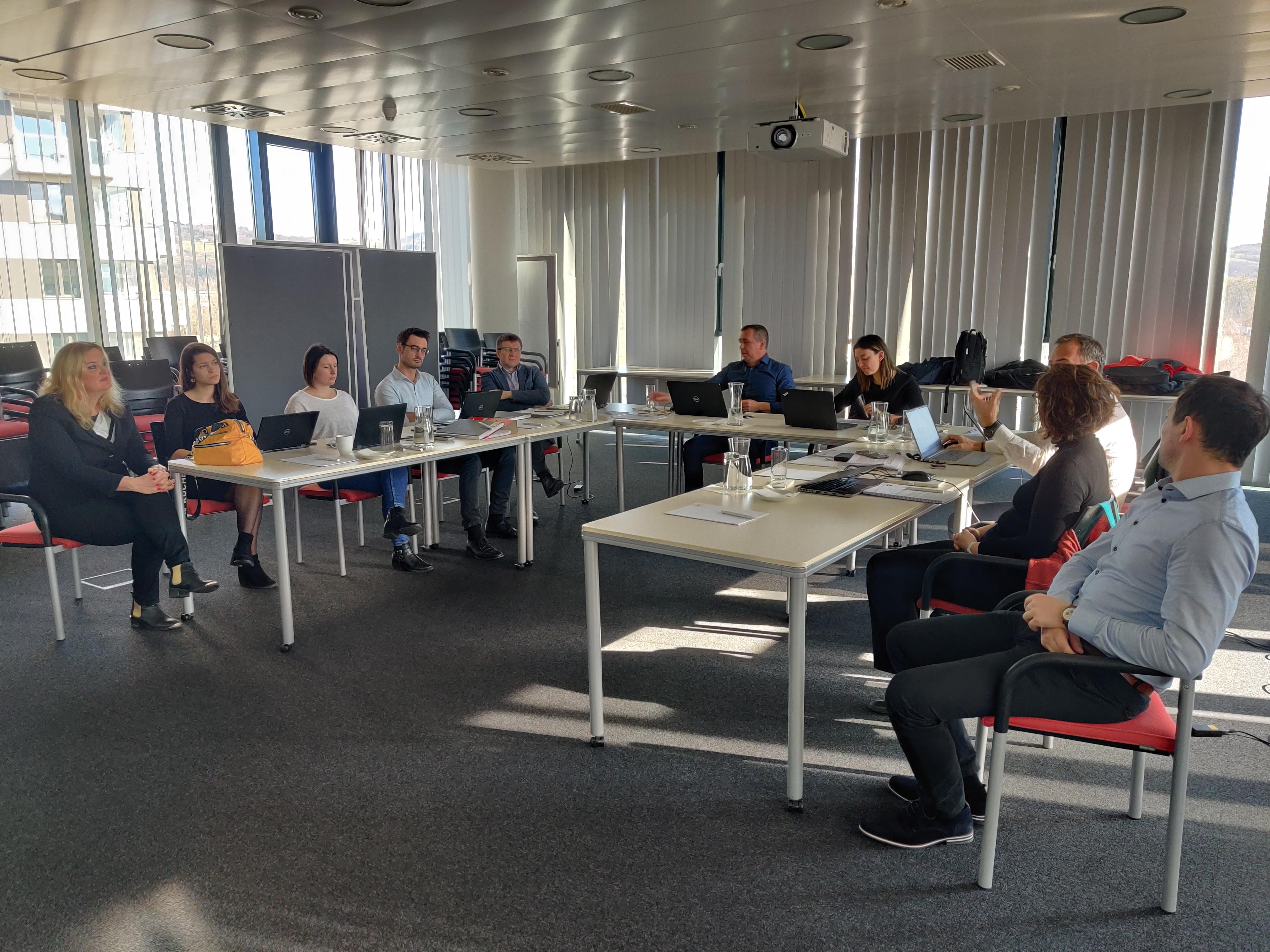
Food Products Quality Cluster meets with Turkish representatives
On 29 January 2020, a meeting of LFFC Food Products Quality Cluster and the Turkish Chamber of Commerce and Industry took place in the Ministry of Agriculture building.
The Latvian food industry was presented to guests from all regions of Turkey, noting also the National Food Quality Scheme, with the Green and Red Spoon products exceeding the quality requirements of the European Union. Possible scenarios for promoting cooperation between producers in both countries were identified.
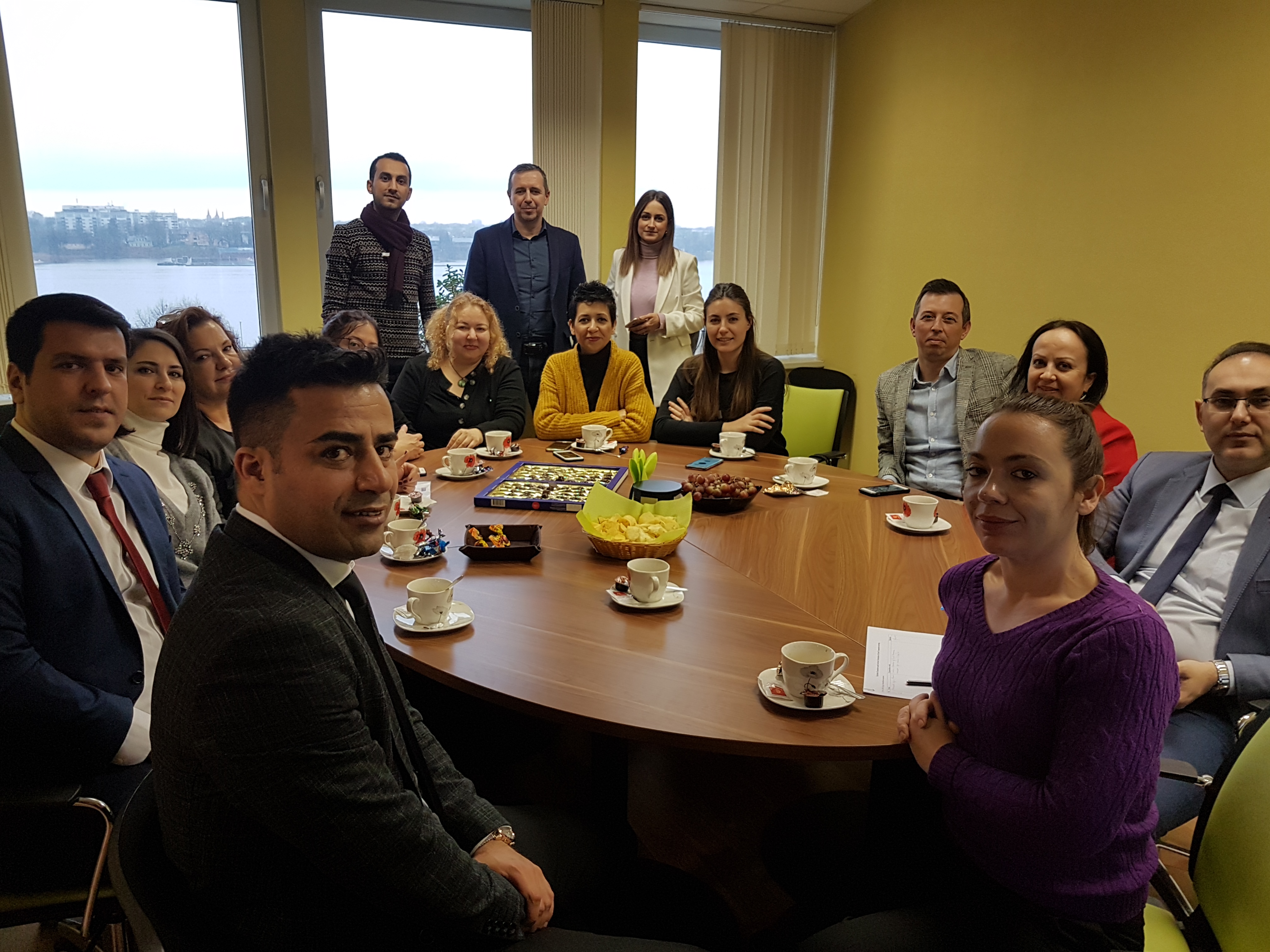
Food Product Quality Cluster chooses Latvia’s best young baker of 2019!
The contest among students of Latvian professional education institutions “Young baker 2019” (“Jaunais Maiznieks 2019”) concluded on November 2019. Justīne Jumīte, a student of Jelgava Crafts Secondary School, was recognized its winner.
The contest was organized by the Food Product Quality Cluster and the Latvian Federation of Food Companies in cooperation with the Latvian Bakers’ Association and Riga Technical School of Tourism and Creative Industry. It was supported by AS “Rīgas Dzirnavnieks”, which provided raw materials, and co-funded by the European Regional Development Fund and the European Union.
The baking of the traditional Latvian rye bread is among the longest and most complicated bread making technologies worldwide and as a traditional national cultural value is included in the Latvian Culture Canon. The aim of the contest was to preserve and promote baker’s profession in order not to lose this important symbol of Latvian identity as well as to develop students’ professional skills and creative thinking towards innovations. The contestant had to bake a bread for a modern consumer using natural ingredients.
Such contests enable future bakers to show their creative approach, acquired skills and knowledge in practice, as well as to accumulate their experience and improve their qualification. To be a baker means not only to make bread, but also to preserve and maintain Latvian traditions of baking and to give a contribution to these traditions, thus promoting one of the world’s oldest crafts – that of baker .
12 Students of professional education institutions aged 17-23 participated in the contest. The future bakers represented Riga Technical School of Tourism and Creative Industry, Valmiera Technical College, as well as Jelgava Crafts Secondary School, Ogre Technical College and Kuldīga College of Technologies and Tourism.
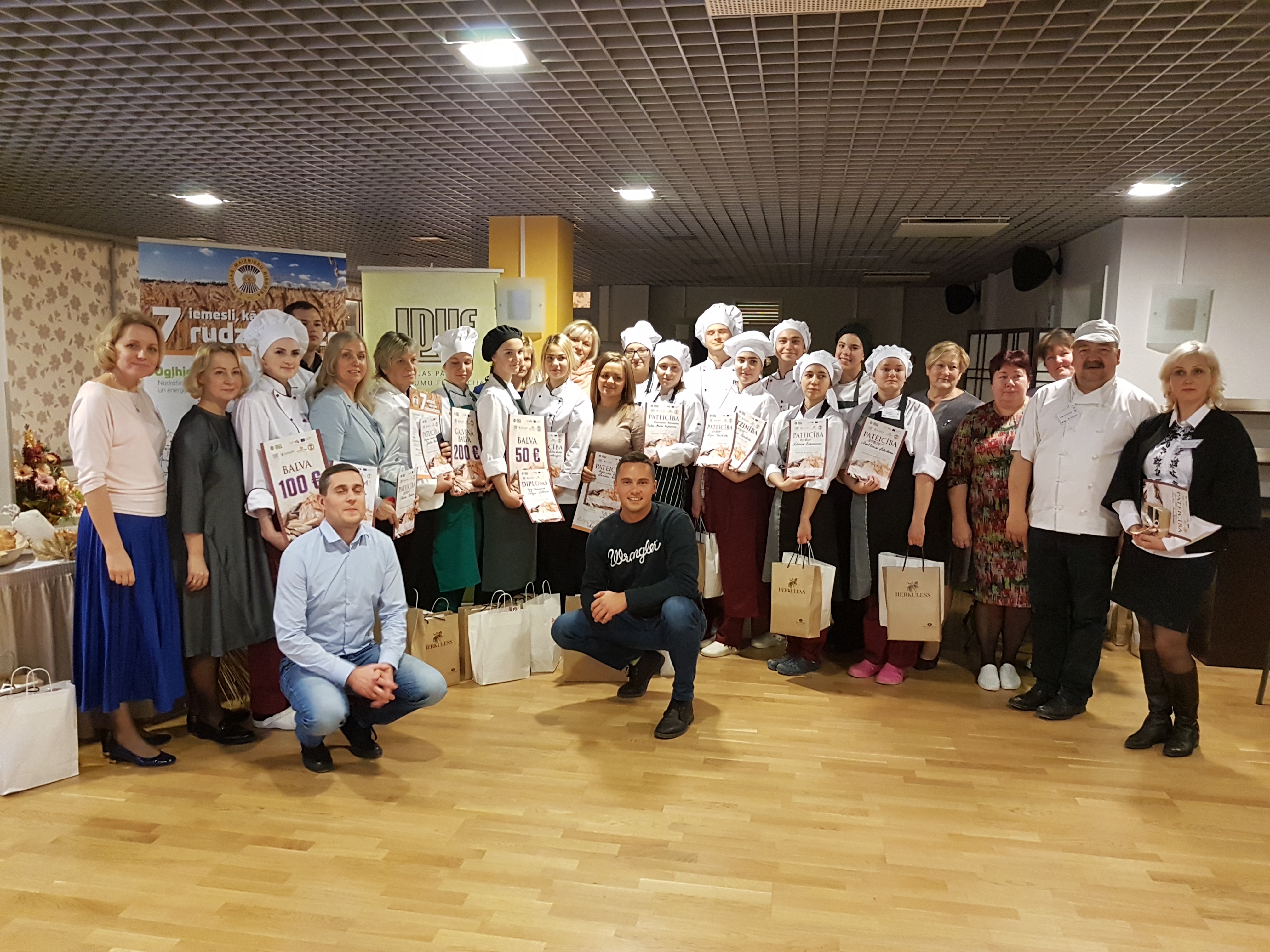
DIGICLUSTERS management team meeting
In March 18th, 2019 the project partner representatives took part in the project management team meeting and study visit in Kaunas, Lithuania.
The purpose of the visit is to:
- Discuss basic aspects of project implementation
- Sign a partnership agreement;
- To discuss about the progress of implementation of the project activities
- To study from best practices of implementing local Hackathons
Intensive meetings with project partners, debates, discussions and group work will facilitate to share best practice and experiences on the implementation activities who will help to reach the final project goal.
During the visit, the representatives of the project partner institutions will have the opportunity to be a part of Baltic Cluster Forum 2019. According that BALTIC CLUSTER FORUM 2019 this year is officially included in EU Cluster Weeks initiative and will focus on one of the key factors to ensure growth and success in the future clusters: innovation. During the conference, variety of local and foreign experts will provide best practices to start, promote and sustain innovation process, reveal the significance of international and cross-sectoral partnerships in fuelling innovation engine. So the project partner representatives will have good opportunity to spread the information of our implementing project and its activities.
Taking part in the visit is a part of Latvian IT Cluster (LITC) administrated project “ESCP S3 for speeding up industrial modernization of Agrofood packaging sectors towards Industry 4.0 and digital transformation by Cluster-Facilitated X-Industry Hackathons —DIGICLUSTERS”.
This publication was produced with the financial support of the European Union.
The content of this publication represents the views of the author only and is his/her sole responsibility; it cannot be considered to reflect the views of the European Commission and/or the Executive Agency for Small and Medium-sized Enterprises (EASME) or any other body of the European Union. The European Commission and the Agency do not accept any responsibility for use that may be made of the information it contains.
Project “ESCP S3 for speeding up industrial modernization of Agrofood packaging sectors towards Industry 4.0 and digital transformation by Cluster-Facilitated X-Industry Hackathons —DIGICLUSTERS”
Project No. 822095
Project‘s Coodinator: Latvian IT Cluster (LITC)
Project‘s Beneficiaries: AgroBioCluster represented by Foundation UNIMOS (UNIMOS/ABC), Food Products Quality Cluster represented by Latvian Federation of Food Companies (LFFC/FPQC), OnGranada Tech City (ON GRANADA), SMART food cluster represented by Lithuanian Food exporters association (LITMEA/SFC), Association of Lithuanian Printing Industries (LISPA), Lithuanian Innovation Center (LIC).
Project duration: The duration of the action will be 18 months as of 01/10/2018
The project is co-funded by the European Union’s COSME Programme.

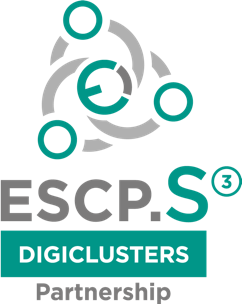

Food Products Quality Cluster is a co-founder of Latvian Clusters Network
1st July, 2019 was important day for Sector Clusters of Latvia. Signing of the Memorandum of Understanding on Clusters Cooperation in Latvia. Memorandum was signed by 13 leading Latvian Sector Clusters: Food Product Quality Cluster, Latvian Health Tourism Cluster, CleanTech Latvia, Latvian IT Cluster, Latvian Export Cluster, Green-tech Latvia, Enter Gauja, Latvian electronics and electrical engineering cluster, Latvian Life Sciences Development Cluster, Latvian Security and Defence Cluster, Metalworking cluster, Print and media technology cluster, Latvian wood construction cluster.
Main objective is to strengthen Sector Clusters in Latvia.
Common activities:
- Development of Latvian Clusters Network
- Representation Latvian Clusters at international level
- Join to European Alliance of National Cluster Associations
- Cooperation between Sector Clusters in Latvia
- Develop common initiatives, projects and events at Latvian and International level
- Strengthen cooperation and coordinated actions for Cluster development in Latvia
Representative of the Latvian Clusters Network – Armands Lejas-Krumins (armands.lejas-krumins@lpuf.lv )
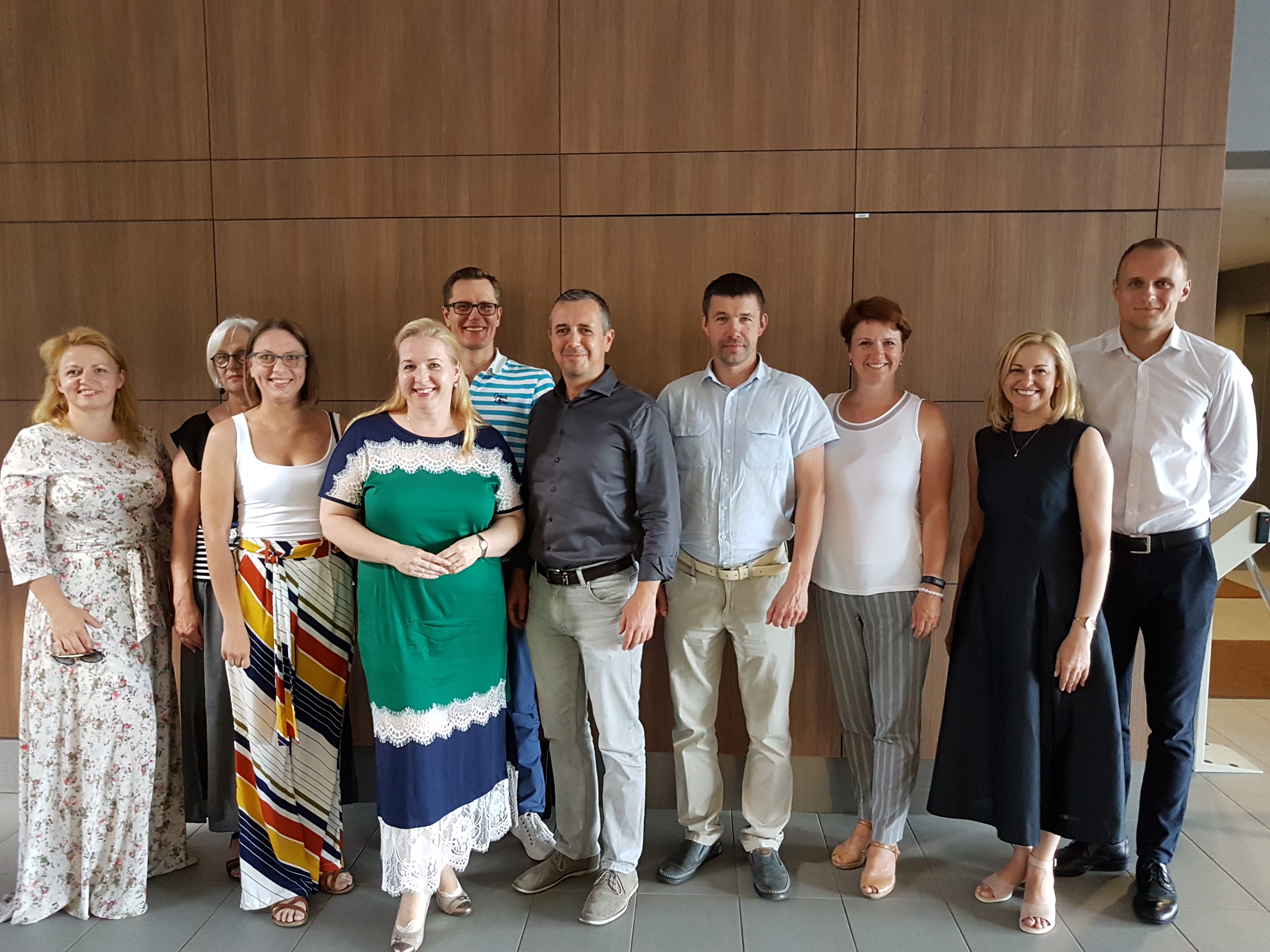
Latvian Food B2B Matchmaking Event
On 12-13th of March Food Products Quality Cluster in cooperation with Gateway&Partners organize Latvian Food B2B Matchmaking Event where Latvian food manufacturers welcomed European food importers.
The event gathered 9 European importers that came to Latvia to individually meet 10 Latvian producers of fish, meat, bakery and snack products. The event was opened with a seminar which gave an inside look to foreign participants into food industry in Latvia and manufacturing environment in the Baltic countries.
During the B2B matchmaking event a total of 48 meetings took place where the producers introduced the buyers to their product range, capabilities, core strengths and advantages. The program was followed by visits of buyers to producers who opened their factory premises to introduce their production environment.
The invited participants had an opportunity to find fresh ideas, get to know perspective and growing businesses, and establish new contacts for future cooperation with Latvian producers.
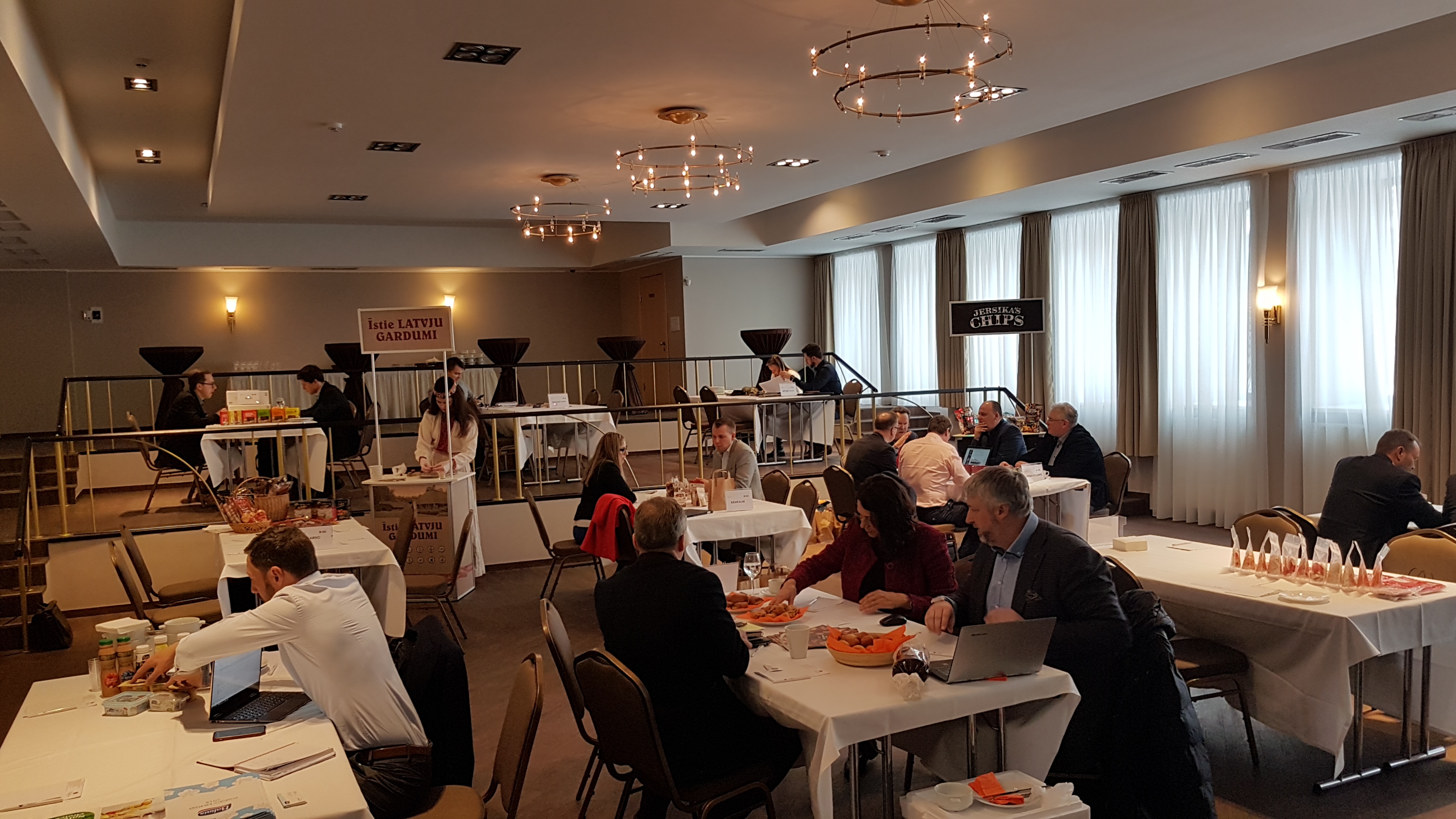
PROJECT
“ESCP S3 for speeding up industrial modernization of Agrofood packaging sectors towards Industry 4.0 and digital transformation by Cluster-Facilitated X-Industry Hackathons —DIGICLUSTERS”
PROJECT No. 822095
Digitalisation is at the base of growth – new digitalisation workshops are launched, specifically designed for the food industry
New digitalisation workshops for the food industry, also titled X-industry hackathon, have been launched on March 19th, taking place till April 16th. Alongside the traditional series of events, a mini X-industry hackathon is presented where IT professionals join the industry SMEs to help them evaluate their current business processes and how the existing digital solutions can help them improve their results.
The X-industry hackathon for the food industry lets the food companies share their business challenges and invites the IT companies to look for the digital solutions. In 5 workshops from March 19th to April 16th they join forces to step out of the box, understand how industries work and put their knowledge together to build new solutions and grow their business. This time, among the participants are Cannelle Bakery, SFT Seafood, Milzu!, Food Union, Baltic Ovo, as well as Taste Caps, Fermentum, Latvijas ķiploks and Oscar’s Fish who participate in the very first mini X-industry hackathon, created to help the companies define and analyse their business processes, and draft potential scenarios how existing digital solutions can improve their results. The IT expertise is represented by Datakom, Burti, Gstream, AndIT Solutions, Lux Technology, Dots., MBIT and Positive Company.
Bruno Ansons, the board member at Cannelle Bakery, explains: ‘This X-industry hackathon, targeted at food industry, was like a catalyst for our company to accentuate a challenge which we had but was not addressed yet – the complicated administration of production documentation. We expect that the event will help us find a solution that is of good quality, easy to use and beneficial, a solution we can effectively implement in our business.’
Over the course of 4 weeks the hosts Latvian IT Cluster, working with different industry professionals, will also offer valuable keynotes in the topics, such as business and product development, user experience, pitching and innovation implementation for the teams to achieve the results faster and gain knowledge that can boost their business development.
X-industry hackathon is organised in a close collaboration with the Food Products Quality Cluster. As its CEO Armands Lejas-Krumins points out: ‘The outcome of the food industry digitalisation project mostly depends on the skill how two industries – the relatively conservative food industry and the digitally advanced IT industry – will be able to communicate ‘without translators’. The opening event gave a hope that the interaction would be successful resulting in new cross-industry collaboration proposals at the Latvian Food Competence Centre.’
In the meantime, Aiga Irmeja, the Executive Director at Latvian IT Cluster, outlines the decision of hosting a parallel mini X-industry hackathon: ‘Preparing for the event and talking to companies in the food industry, we concluded that many of them found it difficult to navigate themselves in the existing pool of the IT solutions and detect the best one for their needs. Thus, this has become one of the focal challenges in this intake – to help these companies create a quality road map for digitalising business processes in a way it can afterwards let them grow more rapidly. This is why we have introduced the mini X-industry hackathon.’
X-industry hackathon is organised under project DIGICLUSTERS that was funded by the European Union’s COSME Programme. DIGICLUSTERS is a novel European Strategic Cluster Partnership for smart specialization investments and industrial modernisation of agrofood & packaging sectors towards Industry 4.0 and digital transformation through pioneer concept of Cluster-Facilitated X-Industry Hackathons. More information about project here.
The content of this publication represents the views of the author only and is his/her sole responsibility; it cannot be considered to reflect the views of the European Commission and/or the Executive Agency for Small and Medium-sized Enterprises (EASME) or any other body of the European Union. The European Commission and the Agency do not accept any responsibility for use that may be made of the information it contains.
Project “ESCP S3 for speeding up industrial modernization of Agrofood packaging sectors towards Industry 4.0 and digital transformation by Cluster-Facilitated X-Industry Hackathons —DIGICLUSTERS”
Project No. 822095
Project‘s Coodinator: Latvian IT Cluster (LITC)
Project‘s Beneficiaries: AgroBioCluster represented by Foundation UNIMOS (UNIMOS/ABC), Food Products Quality Cluster represented by Latvian Federation of Food Companies (LFFC/FPQC), OnGranada Tech City (ON GRANADA), SMART food cluster represented by Lithuanian Food exporters association (LITMEA/SFC), Association of Lithuanian Printing Industries (LISPA), Lithuanian Innovation Center (LIC).
Project duration: The duration of the action will be 18 months as of 01/10/2018
The project is co-funded by the European Union’s COSME Programme
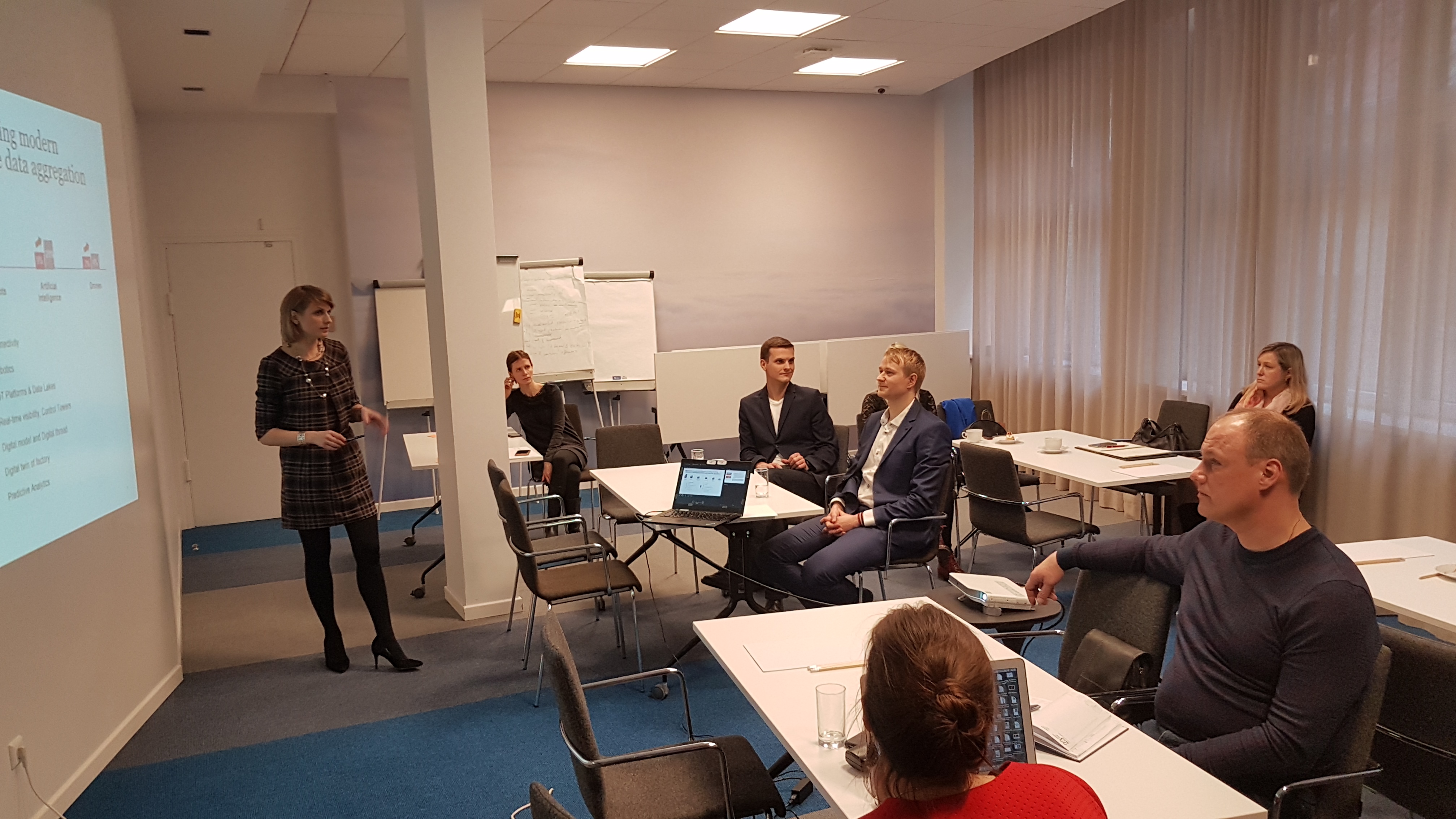
Food Products Quality Cluster is implementing COSME Go International Project DIGICLUSTERS



PROJECT
“ESCP S3 for speeding up industrial modernization of Agrofood packaging sectors towards Industry 4.0 and digital transformation by Cluster-Facilitated X-Industry Hackathons —DIGICLUSTERS”
PROJECT No. 822095
The Grand Agreement was signed on 01/10/2018 by Executive Agency for Small and Medium-sized Enterprises (EASME) under the powers delegated by the European Commission and LATVIAN INFORMATION TECHNOLOGIES CLUSTER (LITC), and the following other beneficiaries: FUNDACJA UNIMOS (UNIMOS/ABC), LATVIJAS PARTIKAS UZNEMUMU FEDERACIJA (LFFC/FPQC), ASOCIACION CLUSTER GRANADA PLAZA TECNOLOGICA Y BIOTECNOLOGICA (ON GRANADA), LIETUVOS MAISTO EKSPORTUOTOJU ASOCIACIJA (LITMEA) (LITMEA/SFC), LIETUVOS SPAUSTUVININKU ASOCIACIJA (LISPA), VIESOJI ISTAIGA LIETUVOS INOVACIJU CENTRAS (LIC). The grant is awarded for the action entitled ‘ESCP S3 for speeding up industrial modernization of agrofood packaging sectors towards Industry 4.0 and digital transformation by Cluster-Facilitated X-Industry Hackathons — DIGICLUSTERS’.
The main objectives of the DIGICLUSTERs project are:
- To support setting-up the European Strategic Cluster Partnership for smart specialization investments (ESCP-S3)
- To foster the collaboration between enterprises, especially SMEs and their interactions with technology centers within the cluster and across regional and sectoral silos towards generating joint actions and investment projects in common smart specialisation priority areas linked to industrial modernisation and to help improving their business environment
- To speed up industrial modernization by bringing together clusters, regional authorities and technology centers and facilitate the generation of a pipeline of joint collaboration and innovation projects
- To implement joint activities with a view to mobilise interregional collaboration and investments of industry actors, notably SMEs, and provide related business, technology and growth support services
- To strengthen and facilitate linkages between clusters, technology centers and regional authorities in order to link specialized ecosystem and create favorable environment for innovations to accelerate industrial modernization
- To entrepreneurially discover new and strategic forms of interregional cooperation between and B2B with European partners to help SMEs incorporate new technologies and digital innovations and trigger collaboration aimed at joint investments
- To improve the visibility of the consortium, its partners and affiliates at European level, building and shaping positive image of involved clusters, SMEs, technology centers and regional governments
Project duration: The duration of the action will be 18 months as of 01/10/2018
The project is co-funded by the COSME programme of the European Union
10.11.2020. Pārtikas Produktu Kvalitātes Klasteris uzsāk jaunas starptautiskas aktivitātes
LPUF Pārtikas Produktu Kvalitātes Klasteris ir uzsācis dalību starptautiskā COSME Go International projektā AUMENTA.
10.11.2020. Pārtikas Produktu Kvalitātes Klasteris uzsāk jaunas starptautiskas aktivitātes
LPUF Pārtikas Produktu Kvalitātes Klasteris ir uzsācis dalību starptautiskā COSME Go International projektā AUMENTA.
